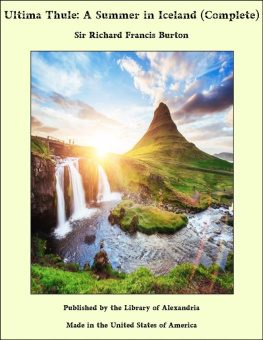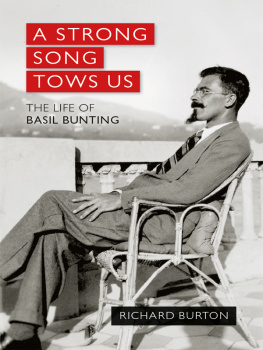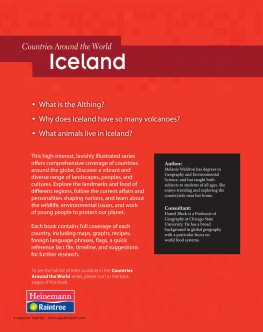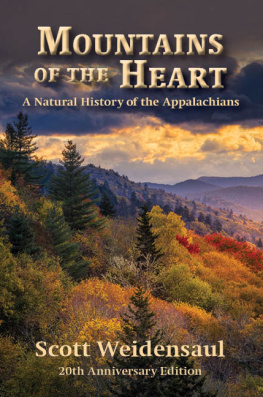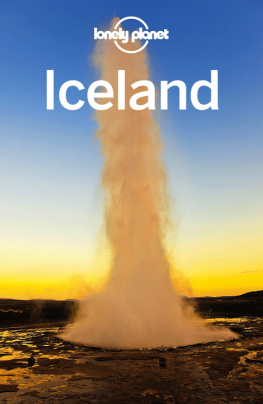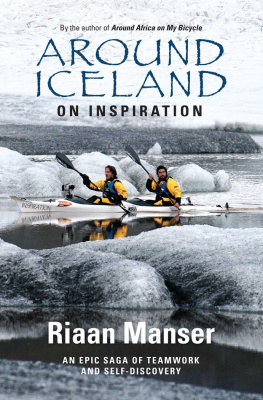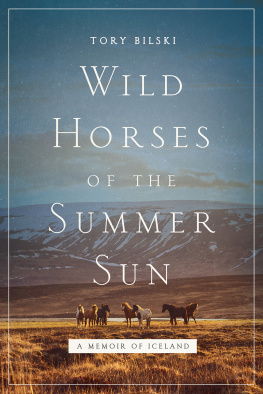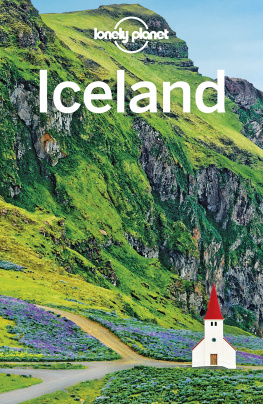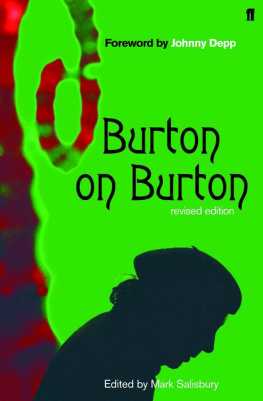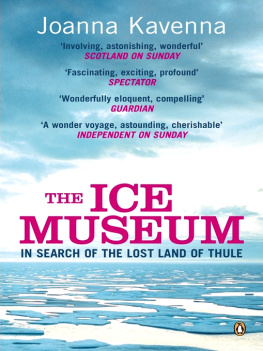(In certain versions of this etext [in certain browsers] clicking on the image will bring up a larger version.)
(etext transcriber's note) |
ULTIMA THULE;
OR,
A SUMMER IN ICELAND.
From a Photo Frontispiece, Vol. I.
MFarlane & Erskine, Lithrs. Edinr.
REYKJAVIK, THE CAPITAL OF ICELAND.
ULTIMA THULE;
OR,
A SUMMER IN ICELAND.
BY
RICHARD F. BURTON.
With Historical Introduction, Maps, and Illustrations.
VOL. I
WILLIAM P. NIMMO.
LONDON: 14 KING WILLIAM STREET, STRAND;
AND EDINBURGH.
1875.
EDINBURGH:
PRINTED BY MFARLANE AND ERSKINE,
ST JAMES SQUARE.
DEDICATION.
Trieste , March 1875.
My Dear Sir ,
Be pleased to accept this very inadequate return for the varied information with which you have favoured me, and for all your hospitality and kindness to me at Edinburgh and elsewhere.
You are so well known as a traveller in Iceland, and as a warm and generous friend to the Icelander, that you will not be held responsible for my over freedom of speech, nor for any unpopular opinions expressed in the pages honoured by bearing your name.
Pray believe me,
Yours very sincerely,
RICHARD F. BURTON.
Robert Mackay Smith, Esq.,
etc., etc., etc.,
Edinburgh.
Signor , non sotto lombra in piaggia molle
Tra fonti e fior, tra Ninfe e tra Sirene;
Ma in cima al lerto e faticoso colle,
Della virt riposto il nostro bene:
Chi non gela, e non suda, e non sestolle
Dalle vie del piacer, l non perviene.
Tasso , xvii. 61.
Not among nymphs and sirens, founts and flowers,
Not in voluptuous herbage in the shade;
But on the toilsome steep where valour towers
Alone, O Prince, our supreme good is laid;
Who from the paths of pleasure will not raise
His thoughts; nor freeze nor sweat, arrives not there.
James.
In somma, ho avuto sempre mai davanti agli occhi quelle sante leggi della Storia, di non osar dire il falso, n temer di dire il vero; e mi lusingo di non avervi contravenuto.
Abbate Clavigero.
PREFACE.
According to the fashion of the day, this volume should have been published two years ago, shortly after my return from Iceland. The truth is that before the second third had been written, I found a large fallow of pre-historic study, the Castellieri of Istria, and I could not help putting hand to the work at Icelands expense. But this much of delay is, methinks, a disadvantage rather in popular prejudice than in point of fact. The loss of freshness brings with it not a little gain. Whilst all the scenes and events of a journey, during and immediately after its progress, appear like an unartistic sketch, confused and without comparative distance; time gives perspective, and relation of details, and distinction of light and shade. Moreover, in treating of Iceland there is present danger of misleading the reader, unless due reflection correct hasty work. The subject is, to some extent, like Greece and Palestine, of the sensational type: we have all read in childhood, about those Wonders of the World, Hekla and the Geysir, and, as must happen under the circumstances, we have all drawn for ourselves our own Icelanda distorted and exaggerated mental picture of what has not met, and will not meet, the eye of sense. Moreover, the travellers of the early century saw scenes of thrilling horror, of majestic grandeur, and of heavenly beauty, where our more critical, perhaps more cultivated, taste finds very humble features. They had Iceland on the brain, and they were wise in their generation: honours and popularity await the man who ever praises, the thorough partisan who never blames. But not the less our revulsion of feeling requires careful coercion: it always risks under-rating what we have found so much over-valued, of tinging neutral-hued sobriety with an angry flush of disappointment.
I went to Iceland feeling by instinct that many travellers had prodigiously exaggerated their descriptions, possibly because they had seldom left home. The most difficult and expensive country in the world would certainly prove cheap and easy after the Andes and the Haurn. What could be made of giddy rapid rivers at most three feet deep, and if deeper provided with ferries? Yet the scare had succeeded in making a deep impression: one tourist came to Iceland prepared to cross the streams in buff, and firmly determined on no account to climb a scaur. The ruts are only one danger of Icelandic travelling, the danger is crossing the streams, says a modern authorhow his descriptions were derided by a couple of English officers who had ridden about the Himalayas! What could I think of the stupendous precipice of Almannagj, of the frightful chasm, of the dreadful abyss, causing the most disagreeable emotions, when also told that men ride up and down the side? Yet another says, rush for your life from the unfortunate Strokkr; whilst we are actually threatened with perils of polar bearshalf-starved wretches floated ashore upon ice-floes to be slaughtered by the peasants with toy scythes before they can stretch their cramped and numbed limbs. The horrific deep chasms of the Reykjavik-Hafnafjr road, and the popular sketches, affected me with extreme incredulity. A friend described to me life in Iceland as living in a corner, the very incarnation of the passive mood; and travelling there as full of stolid, stupid risks, that invite you to come and to repent coming, not like the swiftly pursuing or treacherously lurking perils of tropical climes, but invested with a horror of their ownsuch was not my experience.
Shortly after returning to England, I published, in the columns of the Morning Standard (October to November 1872), two letters for the benefit of intending tourists and explorers. Written in the most sober and realistic style, and translated into many of the languages of Europe, they gained for me scant credit at home. Old Identity again kicked against the goad of New Iniquity, and what could I expect? Mackenzie and Henderson, who would feast wondering eyes upon everything and everybody, had set the example of treating Iceland as an exceptional theme. They found followers: even the hard-headed Scot gallops between Reykjavik and Thingvellir along the edge of a dreadful precipice, where I saw only the humblest ravine; and travellers to the age-weary, worn-out Geysir rise at midnight in their excitement to sing those grand old psalm-tunes, such as York and the Old Hundredth. Need it be said that Mr Cooks pilgrim-tourists have done exactly the same thing in the Holy Land?
My matter-of-fact notions were set down as the effects of Peter Porcupine, over-combativeness, and the undue spirit of opposition that characterises an Objector-General, with the morbid object of gaining popularity by stating something newa hasty judgment, which justifies me in writing these volumes, and in supporting my previously expressed views. I can appeal for confirmation to the dozen intelligent English tourists who were in Iceland at the same time as myself: all united with me in deriding their previous conceptions, and in forming the estimate here offered to the public.
My plan throughout this volume has been as follows: The reader, not the critic, is assumed to know as little about the island as its author did before visiting it; and the first impressions are carefully recorded, not only as a mise en scne, but for conciseness sake, so that only differences, not resemblances, may require subsequent notice. Thus the capital and its environs are painted at some length, whilst most authors simply land at the little port, and set out at once for the interior. The cruise to the north coast, and the Cockney trip to Hekla and the Geysir are related with less circumstance, but I have added itineraries, as such details have not yet appeared in English. The journey through the eastern country claims considerable space. Critics tell us that African travellers have so much trouble to reach the Unexplored Regions, that they are apt to report all they see at wearying length, and to empty the contents of their journals upon the public. But every mile of new, or even comparatively new, ground deserves careful topographical notices: let the general reader skip such photos if he likes, but let them be written at least for the purpose of future comparison. Again, the Icelanders may complain, like the Swiss, that, whilst their country has become a touring-field to Europe, scant attention is paid to themselves. I have endeavoured to remedy this grievance by ethnological descriptions; and though it has been my desire to speak of things, and states of things, not of persons, it has been impossible at times to avoid personalities. And, whilst a wanderer knowing only enough of the language to express his humble wants, whose travels have been limited to a single fine season, has little right

